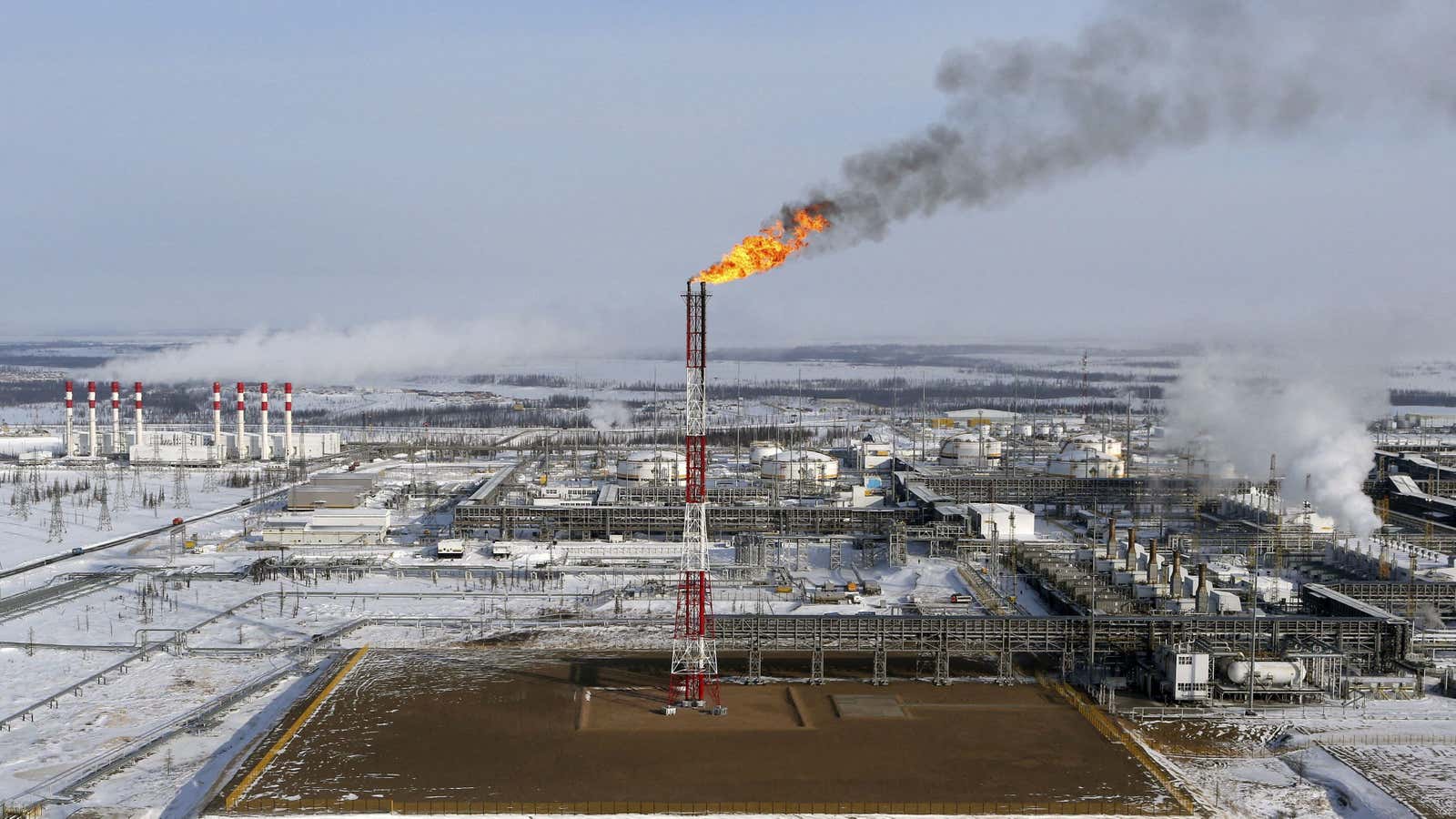The European Union is divided on banning Russian oil imports—and rightly so, because its 27 members buy a quarter of their oil and more 40% of their gas from Russia. Finding replacements overnight will be a near-impossible task.
At the moment, the US and UK have announced bans of Russian oil, but the EU only has a plan to slash gas imports by two-thirds within the next year. The US and UK, however, rely far less on Russia for their energy. Further, Vladimir Putin has threatened to withold gas supplies to the EU if it issues “a rejection of Russian oil.”
What will happen if the EU bans Russian oil?
The EU buys so much Russian energy that it has paid Russia nearly $19 billion since the start of the Ukraine war. In 2021, the EU bought 155 billion cubic meters of Russian gas, according to the International Energy Agency (IEA). Data from the US government show that, in the same year the EU bought 2.3 million barrels a day of Russian oil—almost half of Russian exports.
So a complete freeze of Russian imports would certainly squeeze Russia. But it will also drive oil prices higher, as global supply constricts without Russian oil. The price of a barrel of oil went past $110 this week even as the EU debated its moves. Analysts have warned that prices could touch $200; even more dramatically, Russia has warned of $300 oil if the EU halts oil and gas imports.
According to European Central Bank estimates, a 10% gas shortfall will trigger a 0.7% contraction in GDP. A total ban on Russian energy is likely to shove the EU into recession, Rishi Sunak, the UK’s chancellor of the exchequer, warned last week. And the effects will spread, Sunak said; the UK economy would take nearly a $100 billion hit, or about 3% of its GDP.
When can the EU stop relying on Russian oil?
For Europe to wean itself off Russian energy will take time. One EU diplomat told Reuters that by June, perhaps, European countries would have found other sources of oil and gas to consider a Russian oil embargo. The IEA, in setting out a 10-point plan to cut the EU’s dependence on Russian gas, called it a practical plan to slash imports by a third in a year. To switch out all Russian gas with renewables, the EU would have to install 370 gigawatts of wind farms—more than ten times the wind capacity that the EU wants to install annually by 2030.
But even as the EU defers its decision, things may change. The pressure to act would rise sharply if, for instance, Russia uses chemical or biological weapons in Ukraine. (Putin is considering this, president Joe Biden has said.) Within the EU, dissent will grow. Already, the Baltic countries—relatively less dependent on Russian energy as compared to the Netherlands and Germany—are urging the EU to “pull the plug” on Russian oil, as Lithuania’s foreign minister said on Twitter. The EU’s transition to renewables and alternative sources of fossil fuel will certainly accelerate—but it will still face a difficult, expensive year or two, and perhaps several more, before it feels comfortable again.
